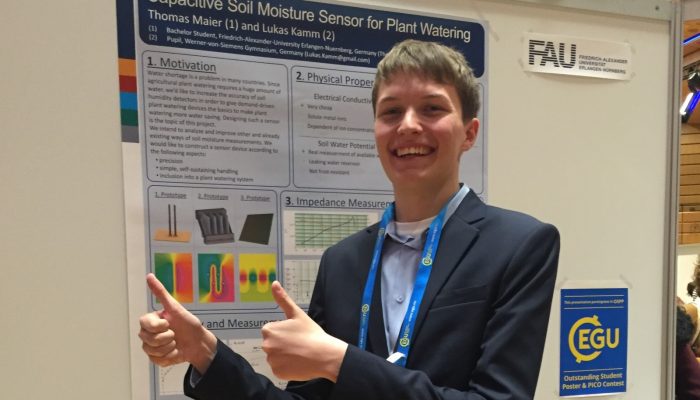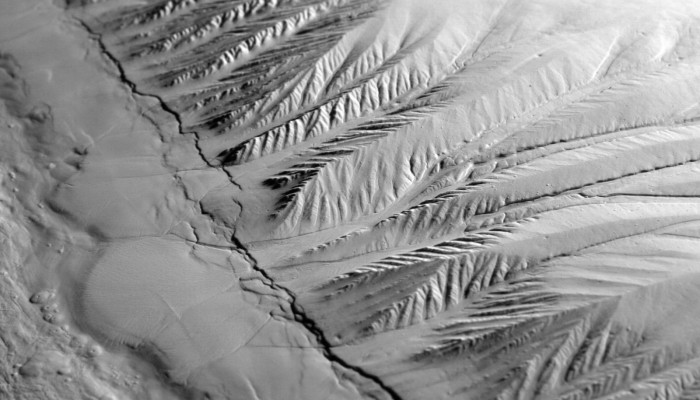Since 2010, the European Geosciences Union (EGU) has been holding an annual photo competition and exhibit in association with its General Assembly and with Imaggeo – the EGU’s open access image repository. In addition to the still photographs, imaggeo also accepts moving images – short videos – which are also a part of the annual photo contest. However, 20 or more images have to be submitted ...[Read More]
Geo Talk: One of the youngest EGU 2016 General Assembly delegates sends sensor to space

Presenting at an international conference is daunting, even for the most seasoned of scientists; not so for Thomas Maier (a second year university student) who took his research (co-authored by Lukas Kamm, a high-school student) to the EGU 2016 General Assembly! Not only was their work on developing a moisture sensor impressive, so was Thomas’ enthusiasm and confidence when presenting his r ...[Read More]
Photo Contest finalists 2016 – who will you vote for?
The selection committee received over 400 photos for this year’s EGU Photo Contest, covering fields across the geosciences. The fantastic finalist photos are below and they are being exhibited in Hall X2 (basement, Brown Level) of the Austria Center Vienna – see for yourself! Do you have a favourite? Vote for it! There is a voting terminal (also in Hall X2), just next to the exhibit. The results w ...[Read More]
Imaggeo on Mondays: recreating geological processes in the lab

Many of the processes which take place on Earth happen over very long time scales, certainly when compared to the life span of a person. The same is true for geographical scale. Many of the processes which dominate how our planet behaves are difficult to visualise given the vast distances (and depths) over which they occur. To overcome this difficulty, scientists have developed and resorted to a n ...[Read More]
